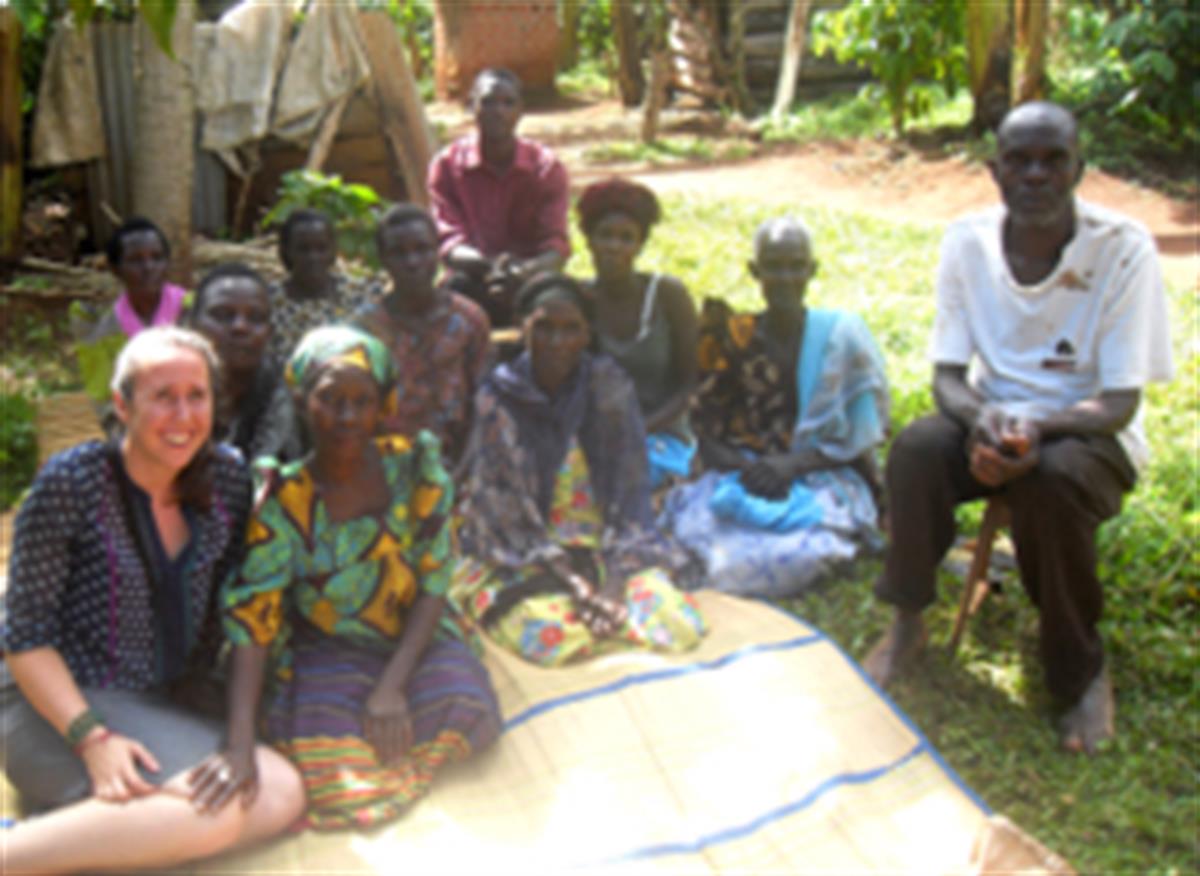
As parents we believe that we are the most important influences in our children's lives and well-being, but can our ideas and behaviors be changed through training? Working in Uganda over the past 12 months thanks to a partnership between AVSI and the University of Notre Dame, the political science major and international development studies minor Olivia Schneider believes it's possible.
She has recently concluded an evaluation of AVSI's Parenting Skills curriculum used in the SCORE project in Uganda. The study demonstrated the significant impact of SCORE's Parenting Skills training on caregiver knowledge, caregiver behavior, and child well-being.
Among the parents, for example, corporal punishment was reduced by 95% and yelling by 88%, both important indicators of negative parenting practices. Among children, there were no significant impacts on school attendance, child labor, substance abuse or health seeking behavior, but there was a positive impact on child psychosocial well-being. The study showed a 70% decrease in social problems, a 58% decrease in emotional problems, and a 58% decrease in behavioral problems among children. Given the short intervention period, these results reflect positive trends that should lead to improved quality of life for children and families over time.
“This parenting skills training makes a great complement to all other SCORE initiatives since it strengthens relationships within the household and shows parents the importance of taking good care of their children,” says Olivia Schneider. “It makes sense that if we are working at the household level to decrease child vulnerability, we first need to target parents with these kinds of parenting education programs.”
The study involved 654 SCORE beneficiaries drawn from several regions of Uganda, with 341 in the treatment group and 313 in the control group over a period of 10 months. It utilized knowledge tests and surveys to capture data on the tiered domains of caregiver knowledge, caregiver behavior and finally, child well-being. The study was followed by a qualitative survey of 36 parents. The main objective was to understand the parent's perceptions of parenting and how the training has impacted their relationships with their children: 56% said they used to use corporal punishment and now they don't and 44% said they were too harsh towards their child and have now improved their parenting style.
“The one-on-one interviews I conducted with parents who went through the program really reinforced my belief in its impact,” remembers Olivia. “It was amazing to hear from parents who used to beat their children, and now as a result of the training, they have not only stopped using corporal punishment, but they are also sharing with others in the community about positive ways to discipline children. They thanked us for helping them to communicate with their children, manage their misbehavior, and develop more affectionate relationships. Many of them insisted that we needed to spread this training to all parents in Uganda!”
The Sustainable Comprehensive Responses (SCORE) for Vulnerable Children and their Families is a large multi-year USAID-funded project that reaches over 25,000 vulnerable children households throughout Uganda with the goal of reducing their vulnerability and improving well-being on a number of fronts.
The Parenting Skills training is part of SCORE's family strengthening approach and teaches concepts such as parent-child communication, parent responsibilities, and positive discipline. Based on the parenting styles established by Diana Baumrind (1967), the training promotes authoritative parenting, which involves warm nurturance, firm discipline, and respect for child autonomy.
Olivia Schneider and the co-authors Alfred Biribonwa Agaba, Rita Larok and Massimo Lowicki-Zucca will present the result of their study in September as part of the 3rd REPSSI Conference in Zimbabwe. In 2014, Olivia was one of the recipients of Notre Dame's Kellogg Institute's International Development Fellowships (IDF), a competitive one-year award that places its recipients as full-time professionals within internationally recognized development organizations. In 2015, two more students from the University of Notre Dame were chosen to work with AVSI. This time, they will be hosted again by the SCORE project in Uganda and by AVSI South Sudan.
“In a professional sense, this fellowship year was a great opportunity to learn about monitoring and evaluation, research, project management, and international development in general,” says Olivia. “In a more personal sense, I loved living in Uganda since it's such a beautiful country filled with friendly, welcoming people. I'm very grateful to AVSI and Kellogg for providing me with such an amazing opportunity.”